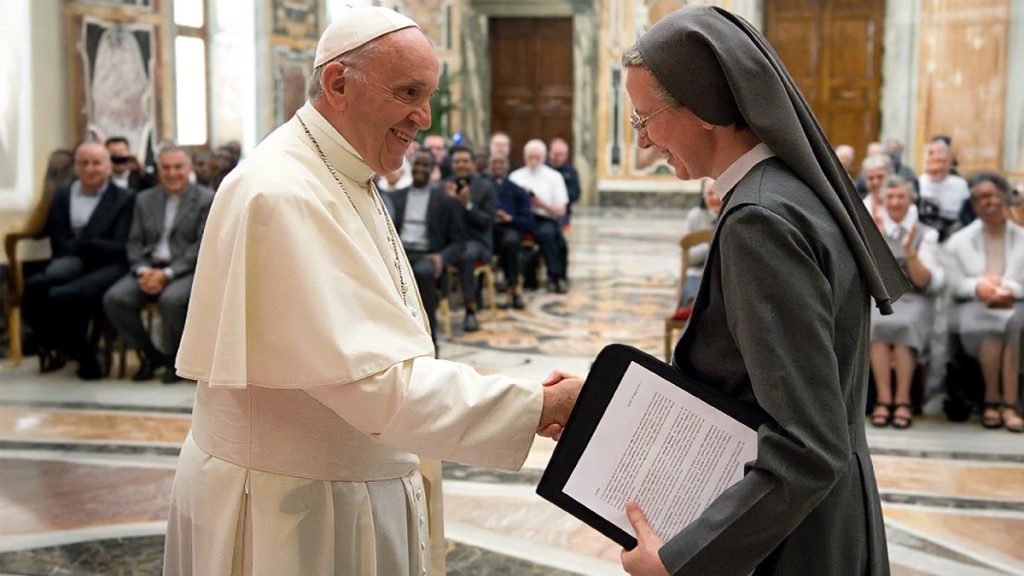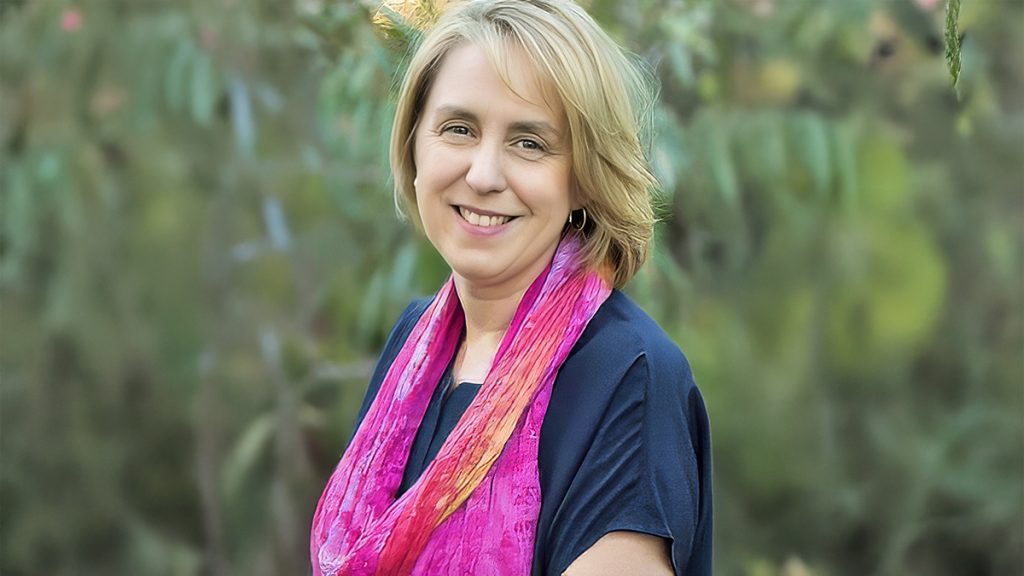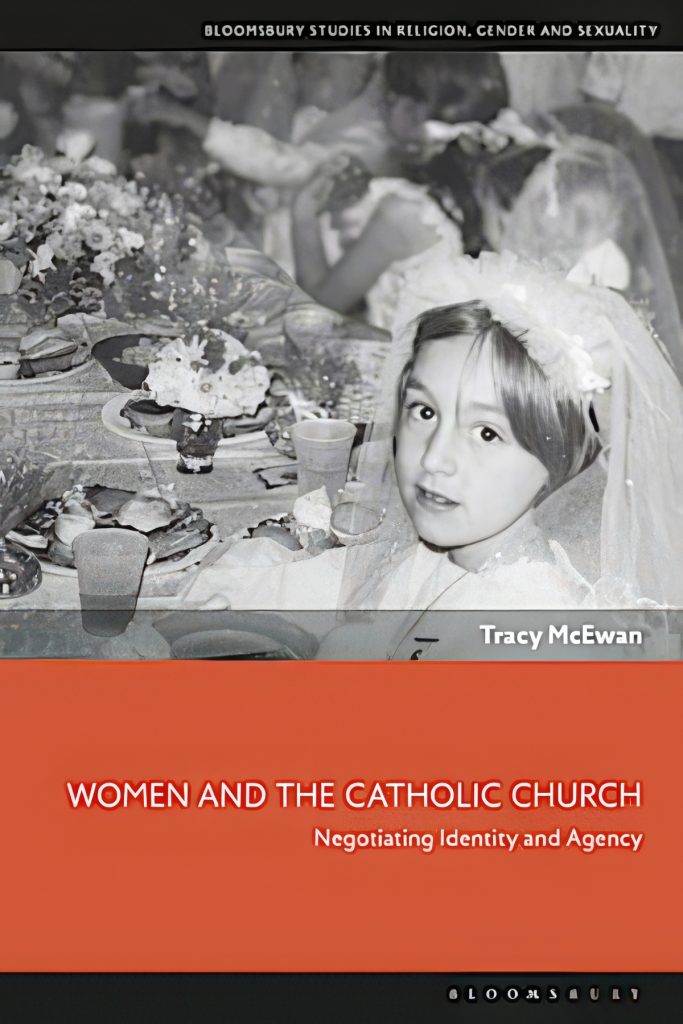In January 2025, Sr Simona Brambilla was appointed by Pope Francis as the Vatican’s first female prefect of a dicastery of the Holy See.
Her appointment as prefect of the Dicastery for Institutes of Consecrated Life and Societies of Apostolic Life marks a significant shift in the governance and role of women in the Catholic Church.
Yet, despite the promise Brambilla’s appointment brings, there are signs the Catholic Church is still unprepared to accept women in meaningful leadership.
An invitation with irony
Ahead of the papal conclave, we learned that Brambilla had received an email invitation to participate in general congregation meetings, typically reserved for cardinals (who must be men).
While the invitation was clearly a mistake, there is irony in the way it was addressed: Il prefetto Simona Brambilla, using the masculine article to denote her office.

Really? Struggling for the right title
More recently, the International Safeguarding Conference 2025 was held at the Pontifical Gregorian University in Rome.
Themed Women of Faith, Women of Strength, delegates explored the harm women experience in the Church and society because of patriarchal attitudes and gender inequalities.
In his opening address, the university’s rector, Fr Mark A. Lewis SJ, admitted struggling with how to introduce Brambilla. Lewis could have used her title, “Prefect.” However, in his address to delegates, he said:
“I’m not sure what the right title is for a sister prefect. I’m not sure if it’s ēminentia sister. Let’s use glorious sister, so your gloriousness.”
It is not the first time clerical men have struggled to find language to address women.
Lessons from Vatican II
The accounts of women who attended Vatican II as auditors and participants in theological commissions are recorded in Carmel McEnroy’s Guests in Their Own House: The Women of Vatican II. McEnroy recalls stories of romantic language being used to speak of women—comparing them to flowers and sunlight.
An auditor at the council, Pilar Bellosillo, remarked that such imagery had little to do with reality. She stated:
“This kind of language detached from life puts women on a pedestal instead of on the same level as man. By doing so, you demonstrate that in reality you consider a man the human being, not woman.” (p. 139)
Why words matter
Words matter—not only symbolically, but theologically.
Sexist language, even when spoken benevolently, goes beyond the words themselves to highlight gendered power asymmetries.
Well‑meaning language that idealises women reinforces inequalities, limits advancement, and undermines authority.
Over time, sexist language can be internalised, reinforcing a system of oppression that normalises masculinity and renders those who are not men less worthy.

A Gospel vision of equality
By contrast, the Gospel offers a vision of flourishing, healing and wholeness in body and spirit.
Jesus transcended boundaries of gender and affliction used to differentiate and discriminate (Mark 5:21–43).
Galatians 3:28 affirms that all baptised in Christ are invited into inclusive, democratic spaces of freedom—communities where gender equality and full participation are realised.
Time for a change
Words matter.
Sexist language—including incorrect titles—undermines women’s credibility and reinforces gendered power imbalances.
It is time to challenge hierarchies in the Catholic Church and empower women through recognition and respect, creating space for them to claim agency, authority and full participation.

- Dr Tracy McEwan is a theologian and sociologist of religion and gender. Her writing and research interests include women in Catholicism; gender-based violence; church participation, generations, and life stage.
- She is a post-doctoral Fellow in the School of Humanities, Creative Industries and Social Sciences at the University of Newcastle, Australia, and an Honorary Fellow at the Australian Catholic University.
- Her monograph, Women and the Catholic Church: Negotiating Identity and Agency was published with Bloomsbury Academic in March 2025.


